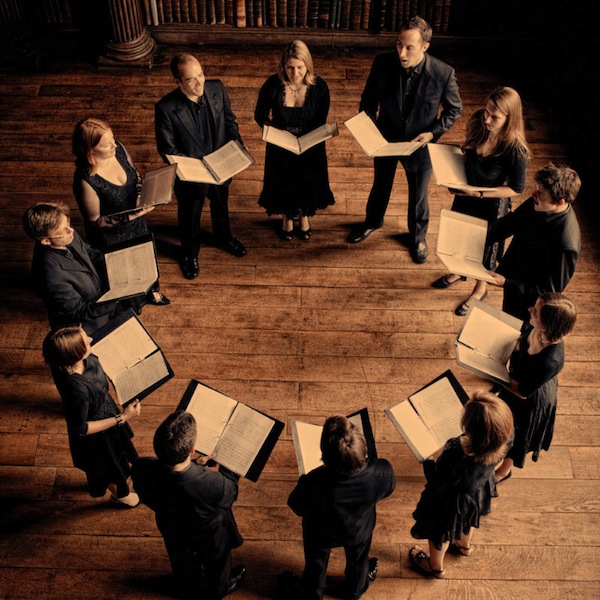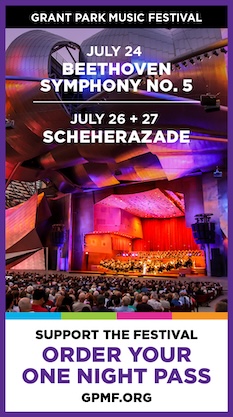Stile Antico soars high with Elizabethan music in Chicago debut
The London-based vocal ensemble Stile Antico made its Chicago debut at Rockefeller Chapel Friday night under the auspices of the University of Chicago Presents series. The 12-member consort’s program was entitled “In a Strange Land: Elizabethan Composers in Exile,” and made clear why Stile Antico has garnered international acclaim in its field of Renaissance polyphony.
The majority of composers represented on Friday’s program were English Catholics writing during the latter part of the 16th century and the beginning of the 17th. At that time Catholics in England were persecuted with varying degrees of severity under the reign of Elizabeth I, leaving them the grim options either to remain in their home country and practice their religion in secret, or flee to continental Europe. Many of the works heard Friday at Rockefeller bespoke the composers’ feelings of loss and isolation under these circumstances.
The program opened with John Dowland’s “Flow my tears,” which immediately evinced Stile Antico’s period bona fides. The group has a luminous collective timbre, and in this work idiomatically leaned into dissonances while keeping its protracted lines elevated. Furthermore, their eschewal of a conductor makes for an organic, seemingly spontaneous presentation, which was a consistently attractive feature of the entire performance.
Following were Philip de Monte’s “Super Flumina Babylonis” and William Byrd’s “Quomodo cantabimus,” both for eight voices. The text of each of these works comes from Psalm 136, which asks “How shall we sing the Lord’s song in a strange land?” and inspired the program’s title. Here Stile Antico’s effortless communication was on display, barely perceptible nods and gestures serving to keep the limpid vocal textures elegantly hanging together.
Richard Dering was one of the Catholic composers who chose to flee England rather than remain in religious hiding, as the audience learned in some helpful historical asides periodically delivered by the performers between works. His “Sancta et immaculata virginitas” is an emphatic veneration of the Virgin Mary; Stile Antico gave this work an effervescent treatment that emphasized its agile imitative counterpoint.
Thomas Tallis’s “In ieiunio et fletu,” scored for five singers—one female, four male—was more darkly hued by virtue of the men’s voices, but even the reduced forces amply filled Rockefeller’s cavernous interior, a product of the group’s superb intonation enhancing its projection. The vocalists underscored the subtle lilt of Peter Philip’s “Regina caeli lartare” and Byrd’s “Tristitia et anxietas” began as though desolate and far away before building to a robust polyphonic climax to close the first half.
The second half featured further works from Byrd, Philips, Dowland, and Dering, all of which Stile Antico gave consistently elegant, sophisticated treatment. The most substantial offering of the night was Robert White’s “Lamentations a5,” a setting of the Lamentations of Jeremiah. The description in the Lamentations of the dispersal of the Israelites following the Babylonian sack of Jerusalem was a fitting analogue and metaphor for the suffering of English Catholics under Elizabeth. In this work Stile Antico stylishly spun seemingly endless melismas, and gave soaring lines both arc and equipoise. The evening closed with an affecting diminuendo to silence as the singers intoned (in Latin), “Jerusalem, Jerusalem, return again to the Lord your God.”
University of Chicago Presents’ next performance is 3 p.m. March 26 at the Logan Center Penthouse. Pacifica Quartet violist Masumi Per Rostad and pianist Sonia Shiang Whun Rostad perform Max Reger’s Sonata No. 1 for Solo Viola, Mozart’s Sonata in E-flat for Violin (Viola) and Piano K. 481, Chopin’s Andante Spianato et Grande Polonaise Brillante Op. 22, and the Schubert “Apreggione” Sonata. chicagopresents.uchicago.edu
Posted in Performances

